 The idea was inspired by the annual New York City Marathon. Athelete and journalist Chris Brasher, who ran in the event in 1979, was so impressed, he wondered aloud, in an article he wrote for The Observer newspaper, if a similar event could be staged in the UK?
The idea was inspired by the annual New York City Marathon. Athelete and journalist Chris Brasher, who ran in the event in 1979, was so impressed, he wondered aloud, in an article he wrote for The Observer newspaper, if a similar event could be staged in the UK? Brasher joined forces with his old friend and fellow runner John Disley, and the two set out to find out what the possibilities were.
Here's a report from the Daily Mail, March 30, 1981...
IT'S A WINNER!
One million people turn out to watch Britain's biggest-ever sporting event
The most amazing sporting event Britain has ever seen turned out to have 5,300 winners yesterday. Around that number finished out of 6,700 who officially started in the first London Marathon and were cheered by a million people as they ran through the streets of the capital.
The first and last to complete the 26 miles and 385 yards symbolised in their different ways the spirit of the occasion.
At the front Dick Beardsley from the United States and Inge Simonsen from Norway linked hands to run the last few yards and stayed a dead heat for the first place.
"What does it matter who wins?" said 24-year-old Beardsley."Every runner who finishes this race is a winner."
Some four hours later, last man home was the oldest competitor 78-year-old Bob Wiseman. "I feel good. It's great to be alive," he said.
The leaders made it an event of the highest athletic quality. At 2 hours, 11 minutes, 48 seconds, the joint winners ran the fastest marathon ever in Britain - and 142 runners finished under 2 hours 30 minutes.
Among them: The first Briton, 34-year-old Trevor Wright, who was third, and the first woman, 43-year-old Joyce Smith.
Personalities in the field included disc jockey Jimmy Savile in a gold lame track suit, whose run raised £50,000 from sponsors for Stoke Mandeville Hospital, and race director Chris Brasher, who said: "It went like a dream."
He is already talking about holding the second London Marathon - on April 4, 1982.
St John Ambulance crews stationed along the route treated hundreds of runners for exhaustion, but the worst damage reported was a broken leg. "We are surprised there weren't more casualties - everyone was very fit," an ambulance spokesman said.
The drizzly conditions were ideal for marathon running - and competitors praised the camaraderie of those taking part and the encouragement given them by spectators.
This aspect was summed up by 29-year-old jogger Ron Crowley, from Liverpool. Four miles from the finish, he was on the point of quitting after stumbling to a halt.
Then, he said, he heard the crowd yelling out his number.
"No one has ever cheered like that for me before," he said. "They gave me heart to go on."
The Daily Mail "COMMENT" section commented:
It's popular. It's freaky. It's here to stay.
The first London marathon was a blistering success. Didn't matter that some top runners chose snootily to stay away. The time was a cracking one anyway.
But, as if to point up the frolicsome gutsiness of this unprecedented happening in Britain, the Norwegian and the American, who won, deliberately crossed the line together holding hands.
And what crowds there were lining the 26-mile route that wound its way back and forth along banks of the Thames from Greenwich to Westminster.
Neither the drizzle nor the loss of an hour's sleep could keep them away.
The atmosphere was peculiarly British... a strange mixture of waiting for the royal procession to go by and egging on a competitor at a father's race in a school sports.
For, with close to 7,000 entrants, almost every family watching knew somebody taking part.
All credit to Chris Brasher for doing so much to promote this American-style folk sport here in Britain.
Catch on?
Nobody will be able to stop it now.
Slight, unassuming middle-aged women shaming thousands of would-be iron men. Balding, bespectacled bobbing chaps, doing every bit as well as athletic-looking bounders. The streets of a big city given over for a few hours at least to a challenge that is human in scale and classless in appeal.
This show will run and run.
All those who took part yesterday - whether they finished or whether they didn't - can reckon themselves pioneers in the making of a grand new British sporting tradition. In years to come, Marathon Day will eclipse Boat Race Day and could even upstage Derby Day.




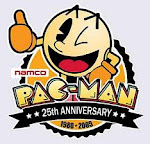

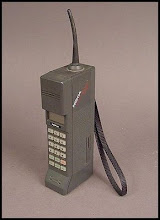
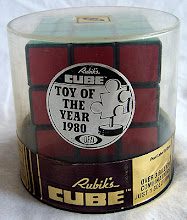

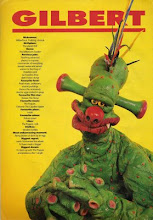
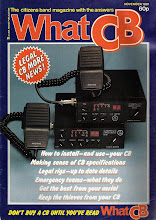

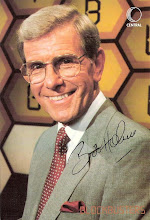
No comments:
Post a Comment